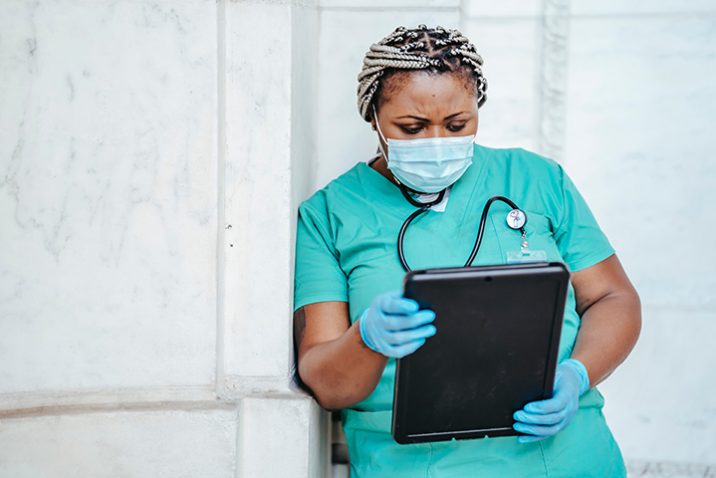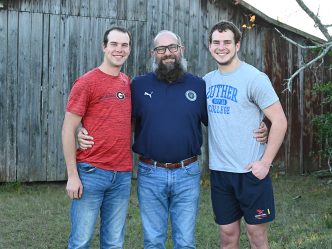As public health officials continue working to address the COVID-19 vaccine hesitancy in the Black community, African Americans are also standing out in another area of health care by ranking among the most reluctant populations to participate in cancer clinical trials, researchers say.
“Only 6% of African American cancer patients participate in clinical trials and 15% of our country’s Black lung cancer patients are willing to be a part of lung cancer clinical trials,” said Dr. Nagla Abdel Karim, medical director of the clinical trials program at the Georgia Cancer Center at Augusta University. “When there’s a low representation of Black and Hispanic populations in clinical trials, it can lead to downstream consequences. To improve cancer disparities, especially with lung cancer being the leading cause of cancer deaths in the United States, we must increase the representation of racial and ethnic minorities.”
To overcome this health care barrier, the Georgia Cancer Center has been awarded a $748,115 grant from the biotechnology company Genentech. The cancer center will team up with the GO2 Foundation for Lung Cancer, the O’Neal Comprehensive Cancer Center at the University of Alabama at Birmingham (UAB) and Vanderbilt-Ingram Cancer Center to work with African American lung cancer patients living in the southeast to get a better understanding of the hesitancy associated with participating in clinical trials.
The project will include participants from Georgia, Alabama and Tennessee, and the Georgia Cancer Center, O’Neal Comprehensive Cancer Center at UAB and Vanderbilt-Ingram Cancer Center will serve as the locations for the study to gain data on regional differences and similarities in their respective areas.
The study will be conducted in two phases, with the initial phase including meeting with focus groups to survey participants for insight into their perceptions on the clinical research process and informing the adaptation of evidence-based interventions aimed at the patient, their families, research staff and medical provider.
Researchers will then move forward with phase two, which involves implementing and assessing the intervention strategies, along with providing the patient and their caregivers with education about clinical research.
“Each of these states have high Black populations and a high lung cancer burden, which makes these locations the best areas for our investigation,” said Karim. “Although this project will focus on increasing clinical research participation rates among Black lung cancer patients in these areas, insights gained are expected to provide a basis for understanding research participation among communities of color in general that can inform future studies and initiatives.”
This study is an expansion of pilot work underway between GO2 Foundation for Lung Cancer and the O’Neal Comprehensive Cancer Center at the University of Alabama at Birmingham’s Office of Community Outreach and Engagement, which aims to produce and provide education and information about clinical trials for the primarily Black community in Alabama.
Learn more about the racial disparities in health care and the Georgia Cancer Center’s clinical trials.
 Augusta University
Augusta University




